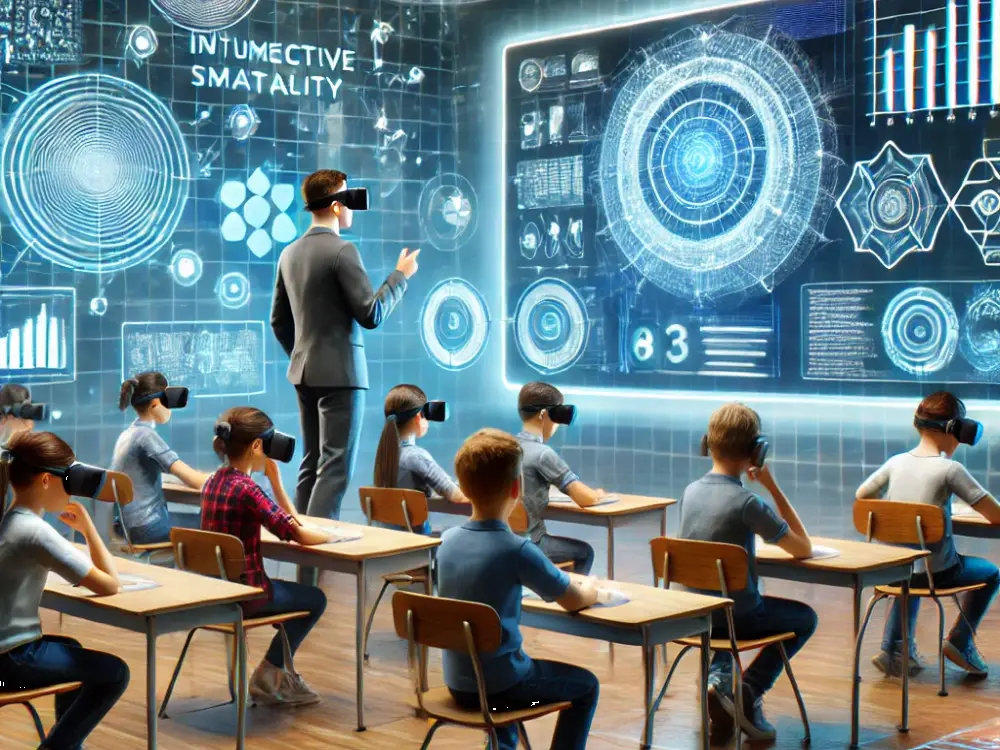AIM Uncovered
Exploring the latest insights and trends in technology and innovation.
Classrooms Gone Wild: The Tech Takeover
Discover how cutting-edge tech is transforming classrooms into dynamic learning hubs. Dive into the wild world of education innovation!
Exploring the Tech Revolution: How Digital Tools are Transforming Education
The tech revolution has significantly impacted various sectors, and education is no exception. With the advent of digital tools, traditional classrooms are evolving into dynamic learning environments that foster collaboration and creativity. Technologies such as learning management systems (LMS), virtual reality (VR), and artificial intelligence (AI) are not just enhancing the educational experience but also reshaping how instructors deliver content. For example, LMS platforms allow educators to curate resources, track student progress, and facilitate interactive discussions, making learning more personalized and efficient.
Moreover, the integration of digital tools has opened up new avenues for student engagement.
- Interactive simulations enable learners to grasp complex concepts through hands-on experiences.
- Online forums provide platforms for peer-to-peer interaction, encouraging diverse viewpoints and discussions.
- Mobile learning apps allow students to access resources anytime, anywhere, thus promoting a more flexible educational journey.

Are Smart Classrooms the Future? Pros and Cons of Tech in Learning
Smart classrooms represent a significant shift in educational technology, offering a range of tools designed to enhance learning and engagement. These environments utilize devices such as interactive whiteboards, tablets, and online resources to create a more immersive experience for students. The advantages of smart classrooms include increased interactivity, personalized learning opportunities, and access to a vast array of educational materials. For instance, with real-time feedback and analytics, teachers can tailor their lessons to meet the individual needs of each student, fostering a more effective learning atmosphere.
However, there are cons to consider when integrating technology into the classroom. One major concern is the risk of technological reliance, where students may become overly dependent on devices for information, potentially stunting critical thinking skills. Additionally, issues such as privacy, equity, and the digital divide must be addressed, as not all students have equal access to technological resources. Educators must weigh these pros and cons carefully to determine how best to incorporate technology in a way that truly enhances the learning experience without creating new barriers.
The Impact of Virtual Reality on Student Engagement in Classrooms
Virtual reality (VR) has revolutionized the way students engage with educational content, offering immersive experiences that enhance learning outcomes. By simulating real-world environments, VR provides students with hands-on practice that traditional teaching methods cannot replicate. For instance, students can explore the intricacies of the human body during a biology lesson or experience historical events firsthand during social studies, making the learning process not only interactive but also memorable. This immersive experience fosters a deeper emotional connection to the material, significantly boosting student engagement.
Moreover, VR innovations promote collaborative learning among students. Through virtual classrooms, learners can work together on projects regardless of their physical location, allowing for diverse interactions and teamwork. These enhanced engagements can lead to improved retention rates and a greater understanding of complex concepts. Educators utilizing VR tools report higher levels of participation and enthusiasm, as students are more likely to engage actively when they can visualize and experience the subject matter directly.
In summary, the impact of virtual reality on student engagement in classrooms is profound and multifaceted, paving the way for a more engaging and effective learning environment.